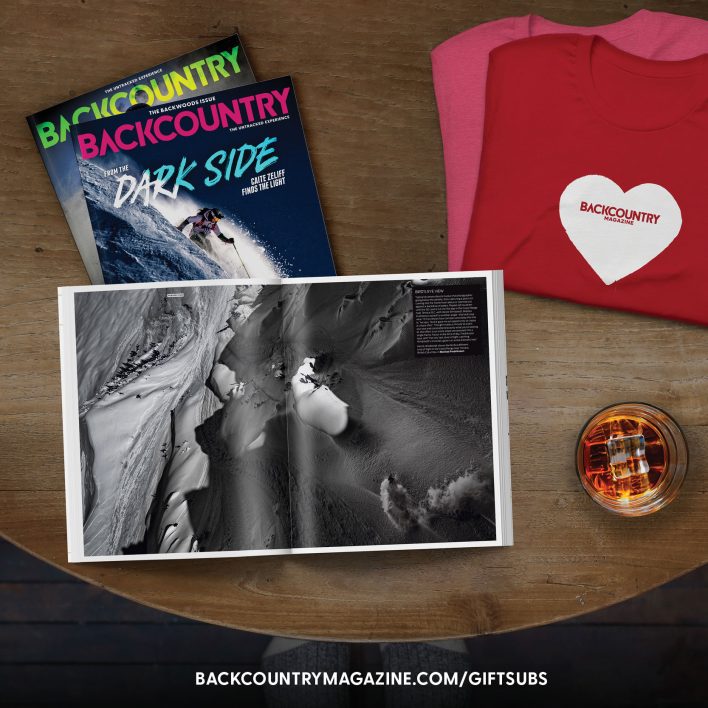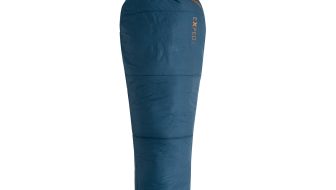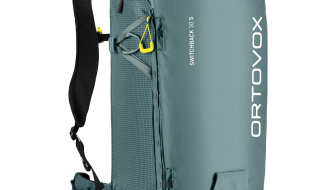Stephanie Nitsch is a woman of many hats. I first met her in 2014 at the SheJumps all-women ski and splitboarding mountaineering course, Alpine Finishing School, held outside of Revelstoke, British Columbia. She was there as both participant and journalist, and I got to know Stephanie through stories of her roving lifestyle. Now Stephanie splits her time between her house in Whistler, B.C. and Park City, Utah, where her new company Pallas Snowboards is based. Pallas, a women’s specific splitboarding manufacturer, is the brain child of Nitsch and co-founder Alister Horn of Chimera Backcountry Snowboards.
I had the chance to catch up with Stephanie and chat with her about the future of women’s splitboarding and how she sees the industry evolving in years to come.
Backcountry Magazine: You live in Whistler but have a company in Park City. How does that work for you?Stephanie Nitsch: I had a dream opportunity to move to Whistler this past summer, so here I am. I’d prefer to be doing this alongside my crew in SLC, but Whistler isn’t a bad alternative. It’s a great place to grow a secondary hub, full of amazing riders and athletes. And Canada is a magnet for the kind of riders we want to connect with.
BCM: What was it that inspired you to start a snowboarding company?
SN: I’ve made the rounds within the snowboard industry for over a decade: liftie, unofficial snowboard coach, shop girl, marketing, branding, etc. My now business partner, Alister Horn of Chimera Snowboards, had an idea a few years ago, and I had the experience and interest in making it happen. At the time, I was working on a women’s mountain bike demo idea—to introduce more women to biking—and was having a hard time getting the bike industry to financially support it. When I had the conversation with Alister and the idea of Pallas started coming together, it seemed like the same idea as the bike thing—just a different mode of transportation.
BCM: What is the general ethos of Pallas?
SN: Education, community and experience are at the heart of what we do. Maybe on a small scale right now, but that will change as we grow.
BCM: How do you think Pallas could affect the greater world of women’s splitboarding?
SN: We held a women’s splitboard clinic in December, and I was amazed that some women thought you honestly had to hike for eight hours before reaching the foot of the mountain in order to go touring. And that even then, you were only riding really gnarly shit. It’s sad that backcountry has this exclusivity surrounding it. Yes, you need some technical skill to navigate the backcountry, but the majority of splitboarding isn’t this extreme, intimidating experience that athletes and the media make it out to be. You can ride mellow, approachable stuff and still get rad. Splitboarding for the everywoman. That’s where it all starts.
That said, women are out there riding badass lines or pursuing a splitboard or guide career, and we absolutely support that. Those are the women that are driving the progression of snowboarding and splitboarding, and encouraging other women in the process, and that’s where Pallas stands, too.
BCM: What would you say to someone who told you that a women’s splitboarding company was too much of a niche?SN: Pallas emerged just as a feminist movement was becoming mainstream—when political, social, and even athletic debates brought women’s issues to the forefront. While Pallas has been able to ride the wave of this “women’s empowerment” rally, it’s also kind of frustrating because we’re not a trend or a topic or a movement or the end result of a gender debate. We’re just snowboarders.
Unisex gear is too bulky and unforgiving. Women’s gear is typically soft and embarrassing. We make neither. We are just people—who happen to be women—that want to build high-performance gear for other women who are pushing boundaries.
We realize that women’s splitboarding is a niche within a niche. Which is why we build solid boards, too. Establishing ourselves as the women’s splitboard company has given us a great platform to stand on and make ourselves known, but we can’t solely rely on it.
BCM: What design characteristics set your boards apart from others on the market currently?
SN: Unlike most women’s gear out there, we don’t hype up anything as “women’s specific.” So, as a women’s company, it’s a bit of a paradox. Yes, our gear is designed and marketed to women, but you don’t have to be a card-carrying lady to ride our stuff.
We keep our construction simple: lightweight but torsionally stiff to rally through aggressive terrain. We experiment with longitudinal stiffness to create playfulness. We also want to make beautiful boards that put you in a beautiful place. We’ve worked with an illustrator in Brisbane, Australia named Gemma Davis for the last two years on our topsheet, and I couldn’t be more excited about her style.
We’ve been playing around with shapes and camber profiles and nose and tail designs. We license a technology from Chimera called Buhmper edges. It creates a more fluid and responsive snowboard feel when you’re descending, holds an edge on the ascent, and cuts down on overall board weight.
BCM: What inspired your desire to donate $10 per board to different nonprofits?SN: Well, why not? Brands influence people. So why not influence people for good reasons? I remember listening to a panel discussion a few years ago at SIA about a backcountry brand’s responsibility to promote safety and knowledge among consumers. And now you see big brands like Salomon to niche brands like Karakoram have launched education components.
We want to make an impact with organizations we support. The Utah Avalanche Center, SheJumps and LiveLikeLiz make sense. The Utah Avalanche Center supports the powder-seeking ethos that our Zeitgeist pow board supports. The SheJumps mission is infused into our Girl Scout board—breaking down stereotypes and encouraging women to get into the outdoors. And Liz Daley was all about having fun—which is our Hedonist board’s personality. We make snowboards, but we have a human story behind every board.
—
To find out more about Pallas Snowboards, visit pallassnowboards.com.


![A Palllas board being constructed. [Photo] Margie Richlen](http://backcountrymagazine.com/wp-content/uploads/2016/01/pallas_embed.jpg)
![Co-founder of Pallas Snowboards, Stephanie Nitsch making some turns. [Photo] Gary Martin](http://backcountrymagazine.com/wp-content/uploads/2016/01/pallas_embed_2.jpg)
![Stephanie Nitsch hard at work building boards. [Photo] Margie Richlen](http://backcountrymagazine.com/wp-content/uploads/2016/01/steph_embed.jpg)








Related posts:
Boardroom: an interview with Christine Feleki, aspiring female splitboard guide
Boardroom: Franco Snowshapes gets quantum with snowboard design
Boardroom: Four Techniques To Improve Your Splitboard Ascents
Boardroom: A look into the life of a Rocket Scientist splitboard revolutionary